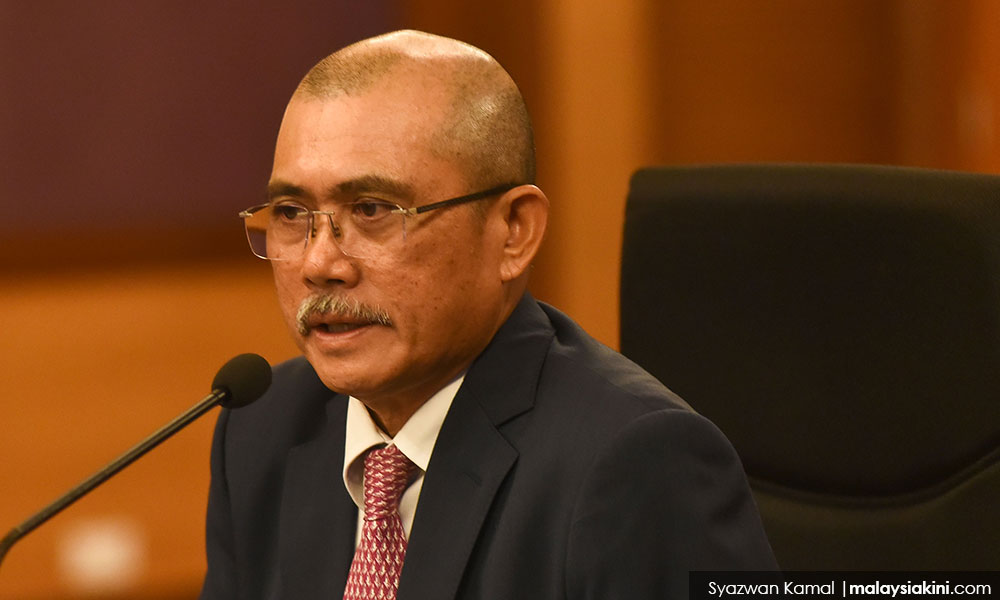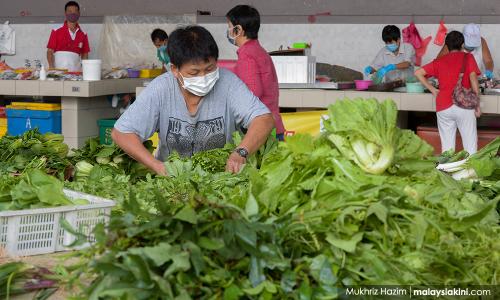61 Controlled Fresh Markets record RM11 million in sales
The 61 Controlled Fresh Market (CFM) locations established nationwide, as of today, have recorded a total sale of more than RM11 million.
Minister of Agriculture and Food Industry Ronald Kiandee said the establishment of the CFM during the period of the movement control order (MCO) was to continue ensuring sufficient food for the people.
In addition, it is also to help the frontline workers in the food industry sell their produce.
"Among the problems faced (by the public, fishermen, farmers and livestock farmers) during the MCO period are the number of business outlets closed, besides the supermarkets which were allowed to operate.
"So the CFM was created under the concept of a supermarket, complete with the aspect of health screening to help the public and the frontline workers of the national food industry," Kiandee said last night, during a Ruang Bicara programme titled 'Covid-19: Food Safety Assurance’.
The Federal Agricultural Marketing Authority (Fama) had so far opened 44 CFM locations while the Farmers' Organisation (LPP) has 17 CFM locations nationwide, with 36 more CFM locations to be opened in stages.
Kiandee (photo, below) said among the CFM fresh produce sales were vegetables, fruits, poultry, fish, meat, groceries and agricultural produce.

He said the CFM was also set up to curb the issue of dumping fresh goods, including vegetables and fruits that were not sold due to the MCO, while guaranteeing that the government would continue to ensure that food supply and food security remained at their best levels.
"The government, through the Ministry of Agriculture and agencies under the ministry, will continue to take steps to facilitate the delivery, sale, retail, wholesale and so on to ensure that food items remain in every Malaysian home.
"To date, the Ministry of International Trade and Industry has granted approval to operate more than 4,000 factories throughout the MCO period, including those related to the food industry, including processing and seafood factories, plastic packing factories and so on," Kiandee added.
Meanwhile, Stakeholder Management SOLS 24/7 Malaysia director Alya Syahida Allias said that people and non-governmental organisations (NGOs) must know of the things needed by the persons and groups they want to donate or contribute to, to avoid any food waste problem.
Alya said by identifying the need of certain groups, it also helped them in terms of welfare and also cut the food waste problem, especially when the MCO started.
"What the needy really need differs from community to community. For the homeless, right now they need a lot of basic essentials and fundings. For the frontliners, they prefer to have dry food, biscuits, 3-in-1 stuff, buns and noodles in cups.
"For the communities at the People’s Housing Projects (PPR), they prefer to have groceries, and during the MCO, we try our best to prevent people from going out," she said on Tehmina Kaoosji live Instagram called 'The Point', which discussed Food Security and Waste during the MCO.
Alya also advised NGOs to only donate what the recipients needed, not the items the donors want to contribute.
- Bernama
RM12.50 / month
- Unlimited access to award-winning journalism
- Comment and share your opinions on all our articles
- Gift interesting stories to your friends
- Tax deductable

